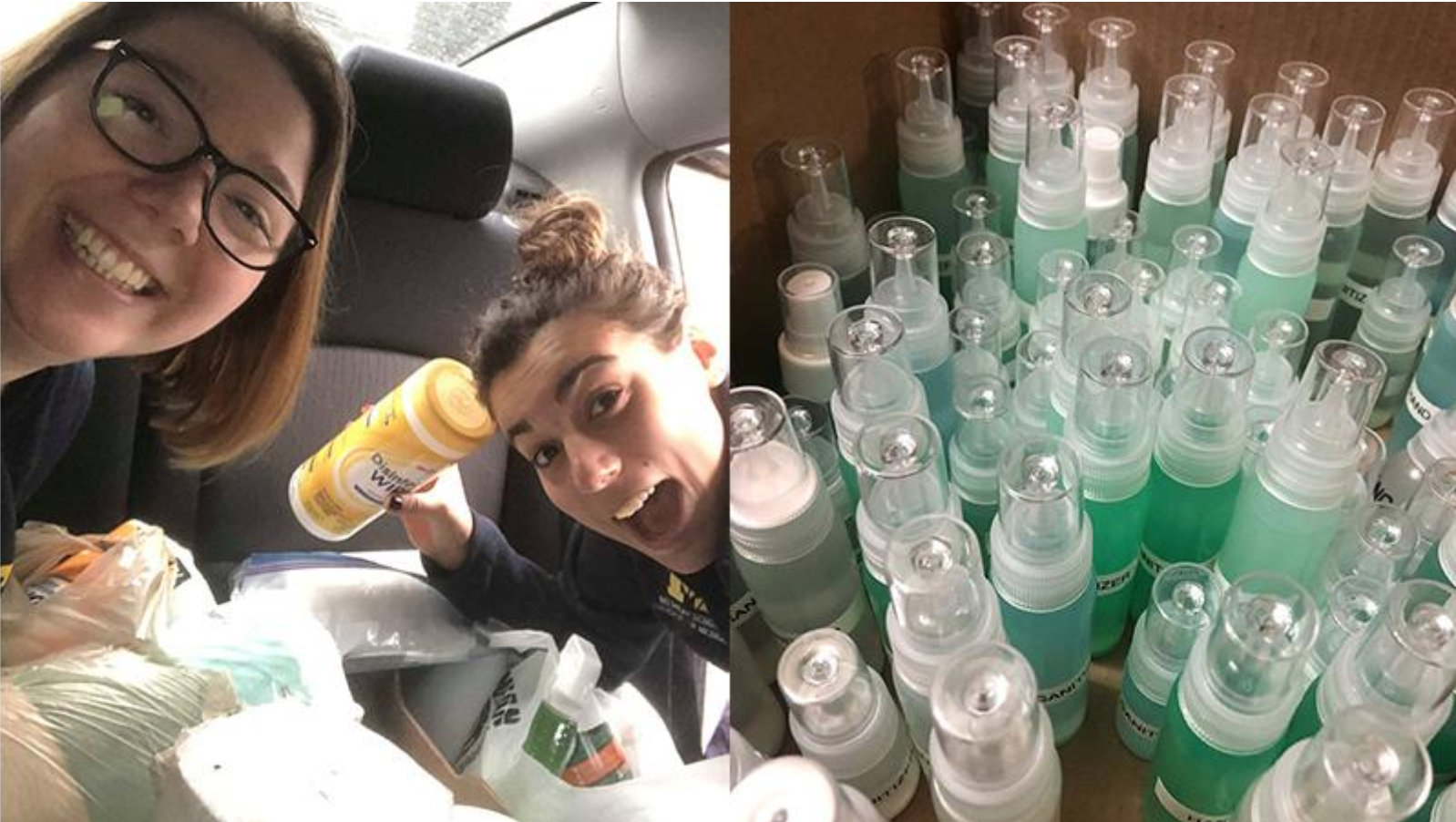
The day the University of Michigan announced classes shifting to an online format and the United States implemented severe restrictions on travel from Europe, Kenzie Corbin happened to be in Detroit.
The spread of coronavirus was making the world a more uncertain place and Corbin, a first-year U-M medical student, realized that the threat wasn’t equally dispersed.
“I saw a group of homeless people and it occurred to me that, if even people with means are having a hard time buying hand sanitizer right now because stores are out, what does that mean for the homeless population?” Corbin said. “Shelters are crowded spaces. Anything can spread like wildfire in there. I went to bed thinking about it and woke up with an idea.”
Within days, Corbin and other students had distributed 100 mini-bottles of hand sanitizer — made from a homemade recipe and donated supplies — to the local homeless population with plans to do more. With all classes now online-only and clinical rotations suspended, medical students like Corbin are putting their extra time and their talents to use for the community. An internal Google doc created by Corbin and now circulating among the students shows an extensive list of student-driven community projects including blood donation drives, free babysitting services for frontline care providers, and much more. The list is growing.
First-year student Serena Bidwell and third-year student Gabrielle Lacy are establishing a network of available medical student who babysit or nanny free for Michigan Medicine care providers working through the ongoing public school shutdown.
“I am so humbled to be part of this group of students and student leaders,” said Bidwell. “Under circumstances where most of the world has to shut down and create social distance, our student community is proactively finding ways we can step up. It’s very inspiring.”
In addition to moving classes across the University online, UMMS suspended all medical students’ clinical rotation activities in response to the emerging coronavirus pandemic, consistent with national guidelines offered by the Association of American Medical Colleges. Faculty members are exploring ways to mentor the students beyond the clinical setting, including helping them channel and sustain their efforts to maximum collective benefit.
“While our classrooms might be empty, nothing will ever measure up to the learning opportunities presenting by this unfolding healthcare challenge. I’m proud that our student community is eager to engage,” said Joseph C. Kolars, M.D., senior associate dean for education and global initiatives. “The passion, creativity, and speed with which our students are responding to this crisis is gratifying and deeply moving.”


